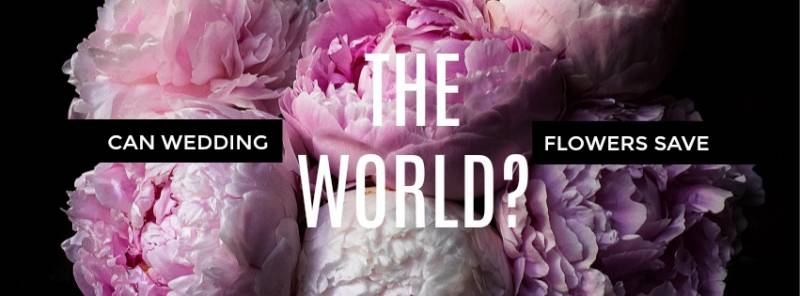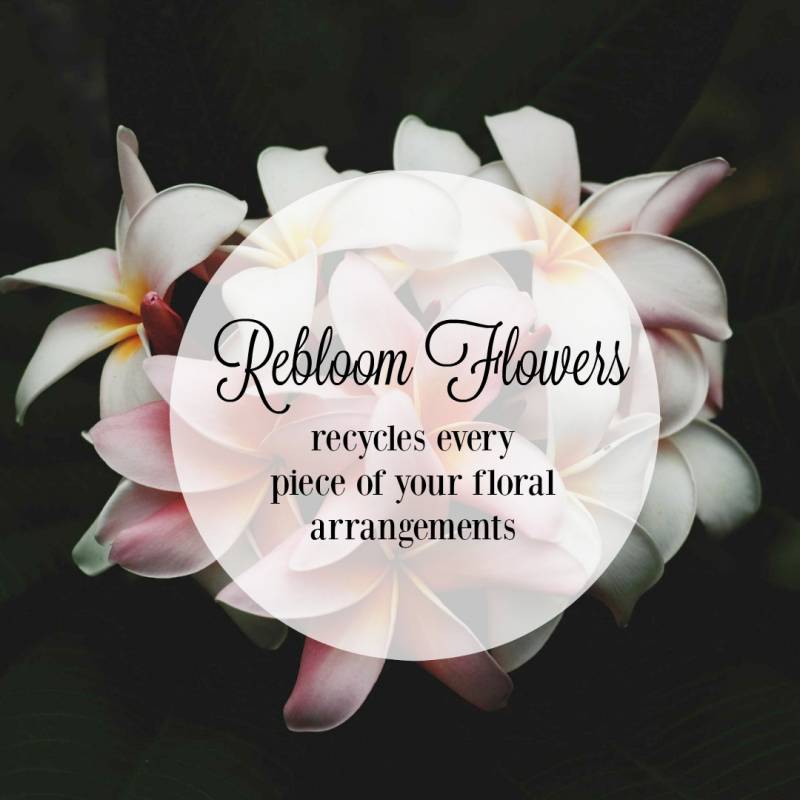
So that’s a big question – can wedding flowers save the world? Something so simple, so specific – what kind of difference can they make? The truth is, flowers are a super force. Not only does their pollen ensure all our vegetation grows, but the nutrients from they compost help plants of every shape and size grow (including trees, which give us, you know, oxygen.) So how can wedding flowers save the world? If every wedding arrangement was responsibly composted (in a compost facility, that is), the nutrients from those arrangements could grow food for thousands of people, and help feed millions of plants, animals, bugs and of course, people.
But it’s not like after your wedding, you feel like popping over to the compost site at 3 am and dropping off your blooms. Not priority number one, we get it. BUT! Your wedding flowers can still save the world! Rebloom Flowers is the floral recycle company – they recycle every element of your arrangements (except the vase!), first by re-arranging them for donation to local charities (think hospitals, senior centres, and other non-profits) where exponentially more people can enjoy them for days. And after that, Rebloom Flowers make sure your buds go right back to Mother Nature, by responsible composting that allows more flowers to blossom!
So how exactly does the process work? What is responsible composting? It’s when your flowers work to help new flowers grow. Flowers start from a seed, as we all know. They mature to adult plants, and that’s when they start to produce those beautiful flowers! Those flowers do more than just dress up your wedding decor – they also provide pollination opportunities that are critical for our eco-system. Bees, bird, wind and other animals carry pollen from the male to the female plants, and voila – that’s the birds and the bees for ya.
By composting your wedding plants, you’re providing critical fertilization nutrients to young plants and established adult plants. When flowers are responsibly composted, the nutrients that they used to grow and flourish are recycled back to the earth for a different plant to absorb. And it’s not only plants that use those nutrients – bugs and amebas feed off it as well.





